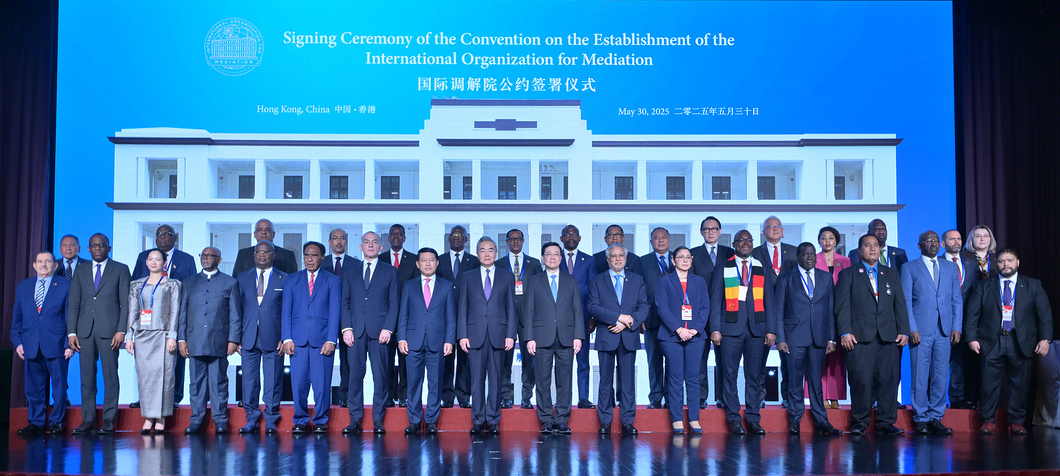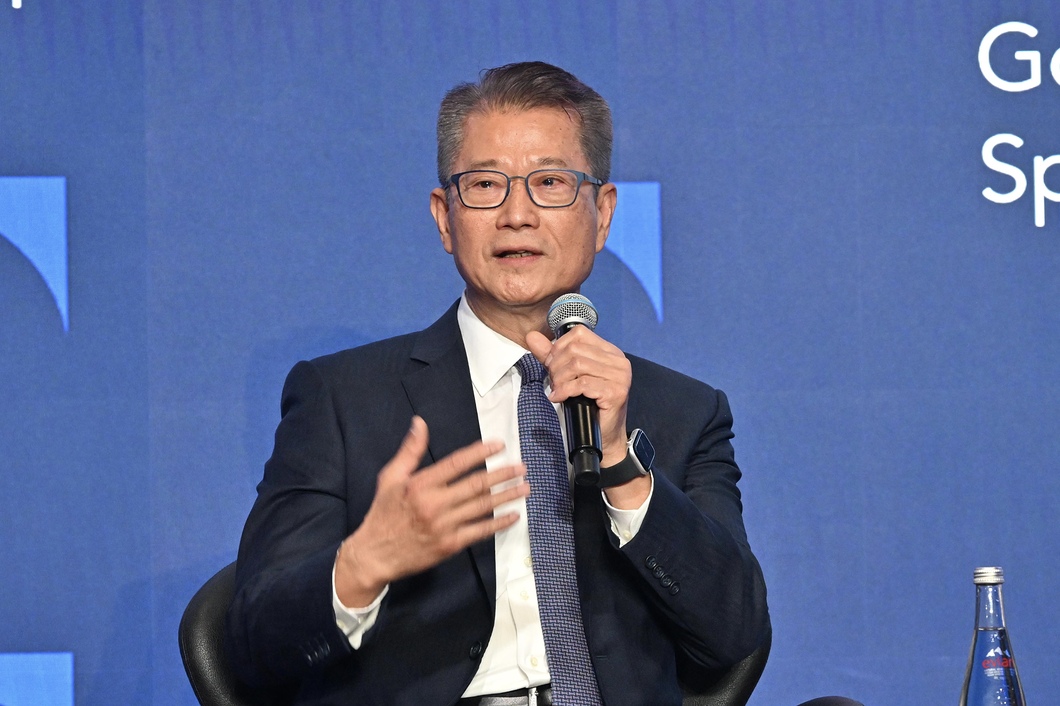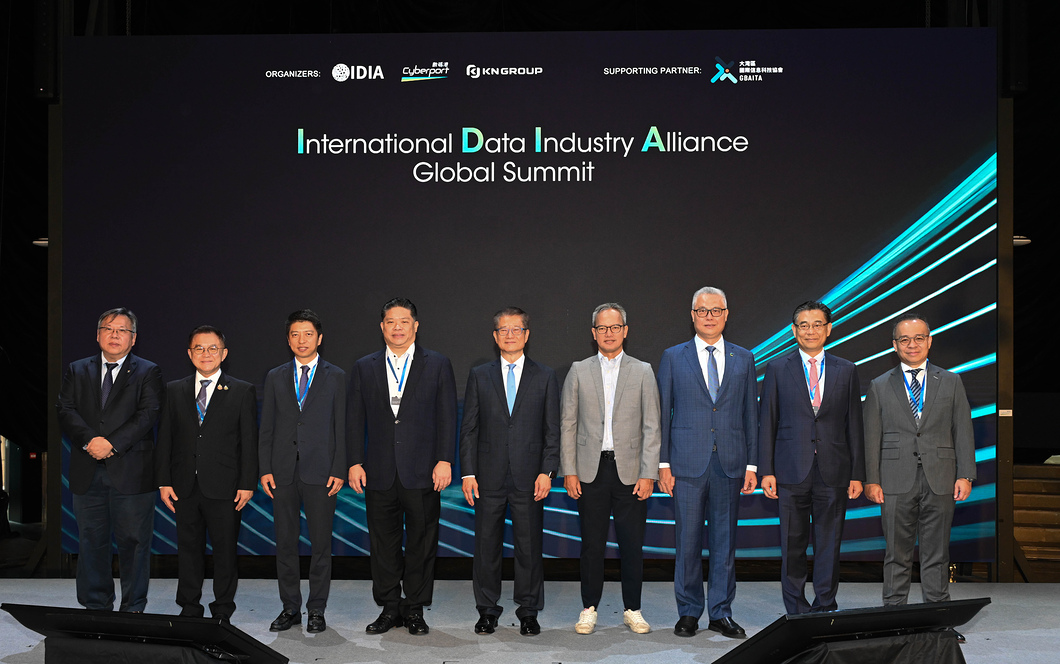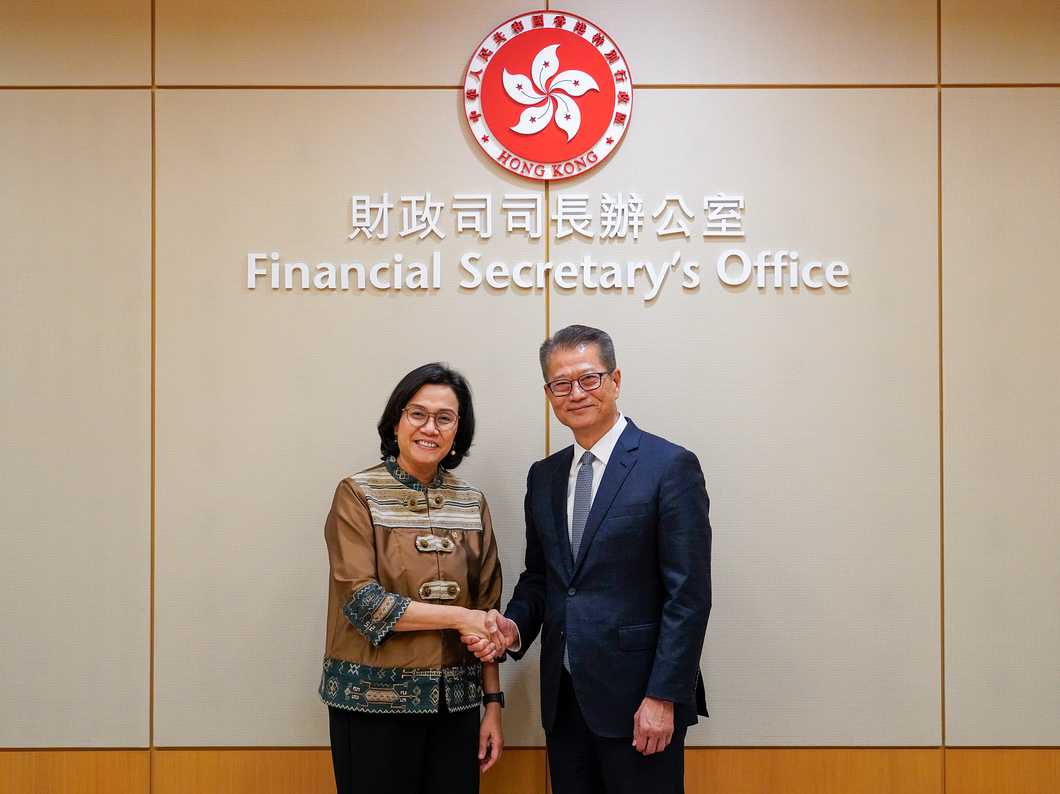Blog
From IOMed to the Global South
Last Friday, the Signing Ceremony of the Convention on the Establishment of the International Organization for Mediation was held in Hong Kong. Representatives from 33 countries signed the convention, becoming founding member states of the International Organization for Mediation (IOMed); senior representatives from over 50 countries and nearly 20 international organisations were also in attendance. The IOMed serves as an important mechanism for peacefully resolving international disputes through mediation, in line with the principles of the United Nations Charter. With the support from our country and the consensus of the signatory countries, its headquarters will be located in Hong Kong. This is the first intergovernmental international organisation to establish a headquarters in the city. The Hong Kong Special Administrative Region Government will accelerate the relevant preparatory work, aiming for the headquarters to start operations as early as the end of this year.
During the Signing Ceremony, Member of the Political Bureau of the Central Committee of the Communist Party of China and Foreign Minister, Mr Wang Yi, said that the birth of the IOMed is an example of a civilisational belief in harmony. The IOMed helps transcend the "you-lose-I-win" zero-sum mentality, promote the amicable resolution of international disputes, and foster more harmonious international relations. In fact, the IOMed not only implements the purposes and principles of the United Nations Charter and bridges gaps in mediation within international dispute resolution mechanisms, but also meets the practical needs of countries worldwide seeking to accelerate common development.

|
| The IOMed Convention Signing Ceremony and Global Mediation Forum on International Mediation were held in Hong Kong last Friday. |
An efficient, fair, just and trusted dispute resolution mechanism is key to promoting more international investment and trade. It helps to enhance investor confidence. In recent years, more bilateral and multilateral investment and trade agreements have included mediation as one of the means of dispute resolution. According to various international studies, roughly one-third of the world's 4,000 international investment agreements include mediation provisions. Such agreements include more recent ones like the Regional Comprehensive Economic Partnership (RCEP) and the ASEAN Comprehensive Investment Agreement (ACIA).
Compared to arbitration, mediation is more flexible, cost-effective, efficient, and convenient. It can help disputing parties maintain long-term relationships with each other. Over the past three decades, the global economic centre of gravity has gradually shifted eastward, with the GDP of developing Asia, including China, increasing from less than 7% of the global total in 2000 to about 24% today. These countries hope that their perspectives will receive greater attention in the global governance system. In recent years, more Asian and African countries have expressed a preference to use mediation as an alternative to arbitration for resolving disputes.
The establishment of the IOMed headquarters in Hong Kong fully reflects the trust that Hong Kong has gained from various parties under the "one country, two systems" framework, bolstering our unique role and function. As the only common law jurisdiction in our country, with excellent rule of law as well as comprehensive legal and dispute resolution services, coupled with a biliterate and trilingual environment and cultural diversity, Hong Kong is the ideal location for the IOMed.
The IOMed will operate at multiple levels, including mediating disputes (1) between countries, (2) between a country and investors of another country, and (3) in the realm of international commerce. These disputes can be mediated according to the wishes of the parties involved, opening a new path to resolving international disputes. This not only reinforces Hong Kong's development as a centre for international legal and dispute resolution services in the Asia-Pacific region, but also strengthens our competitiveness as an international financial, trade and shipping centre. This complements our efforts to deepen ties with the Global South.
The second Hong Kong-Saudi Capital Markets Forum was held last week in Hong Kong, where I also witnessed the listing of the first Shukuk ETF.

|
| At the forum, I shared my views on deepening cooperation between Hong Kong, Saudi Arabia, the Middle East and the Global South. |
In recent years, our economic and trade connections with the Global South have been accelerating. For instance, at the Hong Kong-Saudi Capital Markets Forum held last week, the first Shukuk exchange-traded fund (ETF) was listed in Hong Kong. This is the first ETF in Asia tracking Sukuk issued by the Saudi Government. Over the past two years, we witnessed the listing of the first ETF tracking Saudi equities in 2023; the listing of two ETFs tracking Hong Kong stock indices on the Saudi Exchange last year; and now the ETF investing in Saudi Shukuk. These milestones underscore the growing and reciprocal financial market ties between Hong Kong and Saudi Arabia. They also show Hong Kong's continuous exploration of cross-border financial innovation. Beyond finance, Hong Kong's exchanges and collaborations with the Global South in such areas as trade, investment, innovation and technology (I&T), the digital economy, law, education and tourism have seen continuous progress over the past two years or so.
On the other hand, the local technology sector held an international summit focusing on the data industry last week. It gathered government and industry representatives from a number of ASEAN countries, as well as many experts and scholars. They shared experiences and discussed topics such as industry cooperation and cross-boundary data flow; harnessing data to promote the development of SMEs and smart cities; the future of artificial intelligence (AI); and bridging the digital divide. Hong Kong is a convergence point for data from different places, with application scenarios aligning closely with international standards. We can play a positive role in building regional and international data standards and fostering the robust development of the global digital economy. Many passionate startups in Hong Kong are eager to share their advanced technologies in finance, construction, healthcare, AI and other fields, with a view to assisting developing countries in the Global South to leverage data for leapfrogging development.

|
| Last week, I attended the Global Summit of the International Data Industry Alliance, where I took photos with several representatives from ASEAN at the event. |

|
| I also met with Indonesia's Finance Minister, Dr Sri Mulyani Indrawati, last week, where we engaged in in-depth discussions on economic, trade and financial cooperation. |
ASEAN and the Middle East, which are members of the Global South, have young populations, and their political environments have been relatively stable in recent years. People in these countries are eager to focus their efforts on developing the economy by driving diversified development. They are also willing to invest in infrastructure development, green transformation and the digital economy, as well as improving public services such as healthcare and education. As an international financial centre and a world-class professional services hub, Hong Kong is naturally their ideal partner for collaboration. When I met with the visiting Indonesian Finance Minister, Dr Sri Mulyani Indrawati, last week, we had in-depth exchanges and discussions on the relevant issues.
Whether it is in the field of law, finance, I&T or other professional services, so long as Hong Kong continues to leverage the advantages under the "one country, two systems" framework; gives full play to our role as a bridge between the Mainland and the rest of the world; and maintains our openness and inclusiveness, we can explore new development opportunities for Hong Kong, and contribute to a more prosperous, inclusive and sustainable future for the Global South.
June 1, 2025